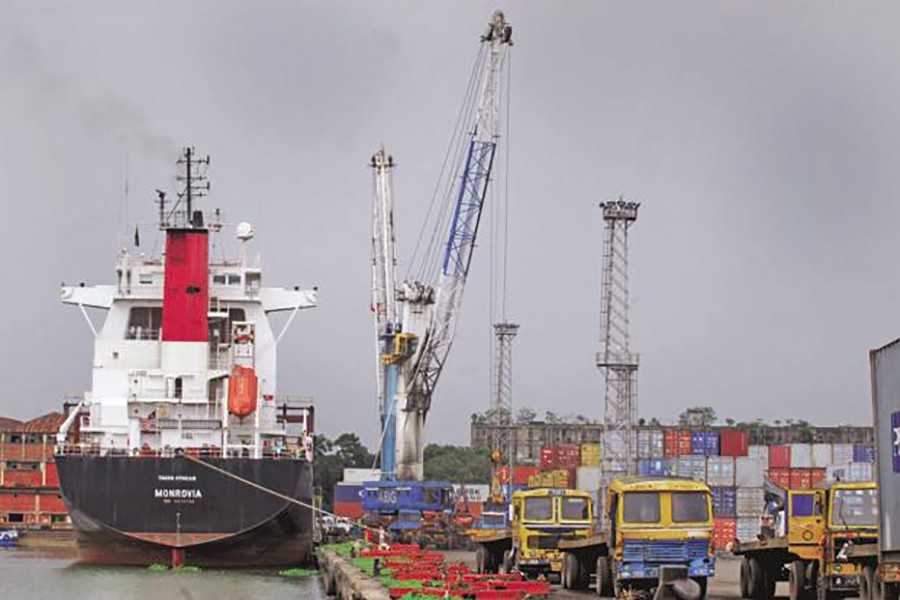India unwilling to add anti-dumping issue in trade package talks with Bangladesh

Image: Collected
India has again opposed inclusion of the problem of anti-dumping (AD) found in a bilateral trade agreement that it has proposed to strike with Bangladesh, officials have said.
The neighbouring country, they added, didn't also agree to an alternative solution proposal by Bangladesh for inclusion of a provision like 'pre-initiation consultation' on anti-dumping issue in the proposed offer.
India declined to preserve any anti-dumping provision found in the first draft of the arrangement--- memorandum of understanding (MoU) on bilateral trade remedial measures--- arguing that it was a quasi-judicial matter.
Latter, officials said, Bangladesh had proposed to include a provision that any party of the MoU should keep consultation first with the other before initiating any anti-dumping measures.
In a letter to the commerce ministry of Bangladesh the other day, the Indian High Commission in Dhaka expressed India's interest in signing the offer sans any provision for 'pre-initiation consultation' during Prime Minister Narendra Modi's Bangladesh visit in late next next.
The MoU aims to determine a framework of cooperation in the region of trade remedial measures and both sides have previously exchanged drafts in this respect.
Regarding to trade officials, India at all times brands the anti-dumping concern as a quasi-judicial subject and has expressed it is unwillingness to discuss the problem. Thus, several anti-dumping cases on Bangladesh's export to India remained unresolved for a long time, they added.
A senior commerce ministry official said that if a provision for 'pre-initiation consultation' could be kept in the MoU, both sides will need to talk to first before initiating anti-dumping cases in future.
"If the MoU features the provision, filing of anti-dumping cases can be prevented through quick consultation," he said.
Officials said the ministry of commerce sought opinion from the Bangladesh Trade and Tariff Commission on the Indian draft and their reservation against the 'pre-initiation consultation'. The commission, meanwhile, recommended trying even more to include the provision, they added.
Alongside the tariff, para-tariff and non-tariff barriers, they said, Indian antidumping and countervailing measures were other major concerns for the Bangladeshi traders.
Presently, Bangladesh is holding negotiation with India on the countervailing duties they imposed on several goods, and the negotiations were occurring beneath the WTO (World Trade Organization) Rules.
The negotiation on countervailing measures under a bilateral pact might produce quicker results than that of the multilateral platforms, they opined.
"Signing a good trade dispute remedial manage India, excluding the issue of countervailing measures, would not be that much good for Bangladesh," mentioned a good trade official. Presently, Indian anti-dumping duty does apply to export of at least three Bangladeshi items - jute goods, hydrogen peroxide and fishing net.
In January 2017, India imposed anti-dumping duty on Bangladesh's jute yarn, hessian and bags ranging between US$19 and $352 per tonne. A similar duty, ranging between $27.81 and $91.47 per tonne, was also imposed on export of hydrogen peroxide to India from Bangladesh found in April 2017.
In 2018, India slapped anti-dumping duty, $2.69 per kilogramme, on fishing net exported from Bangladesh to its industry.
Despite scores of consultations for a long time, India didn't however withdraw these trade barriers, badly affecting Bangladesh's export there, said the officials.
Research Director of Centre for Policy Dialogue (CPD) Dr Khondaker Golam Moazzem earlier told the FE that minimal developed countries (LDCs) delight in specific flexibility beneath the WTO rules on subsidies and countervailing measures.
He said that seeing that an unhealthy nation, Bangladesh should continue applying its LDC status. "Being a graduated LDC, perhaps after 2024, Bangladesh would continue enjoying the similar overall flexibility for a certain time period."
"In this context, Bangladesh shouldn't rush for signing this arrangement with India at this time, and rather it will wait to observe how the WTO provisions will come to be applicable after the graduation."
At the moment, India is coping with disputes related to subsidies and countervailing measures beneath the WTO rules, and Bangladesh should follow the same, he suggested.
Source: https://thefinancialexpress.com.bd
Tags :
Previous Story
- A good tenacious nation built on shape-shifting land
- Vietnam stole a good march on Bangladesh in...
- Bangladesh receives initial parcel train carrying dried out...
- India-Bangladesh stakeholders’ meet to revive age old ties...
- Banks keep Dhaka stocks afloat
- Governance, Risk and Compliance-The Bangladeshi Insurance Industry
- Global Bangladesh Market 2019 Bangladesh Petroleum Corporation, Petrobangla,...
- Logistics, freight thrive on rising trade